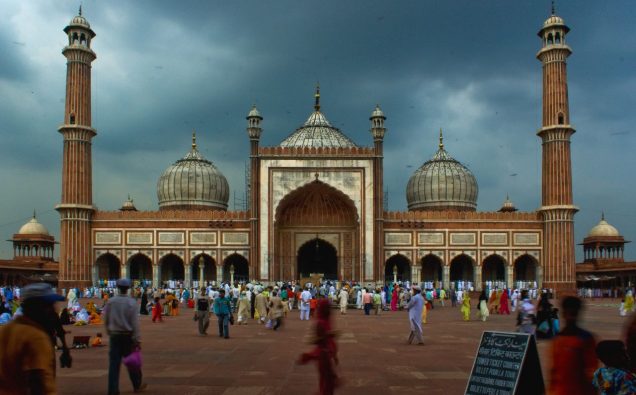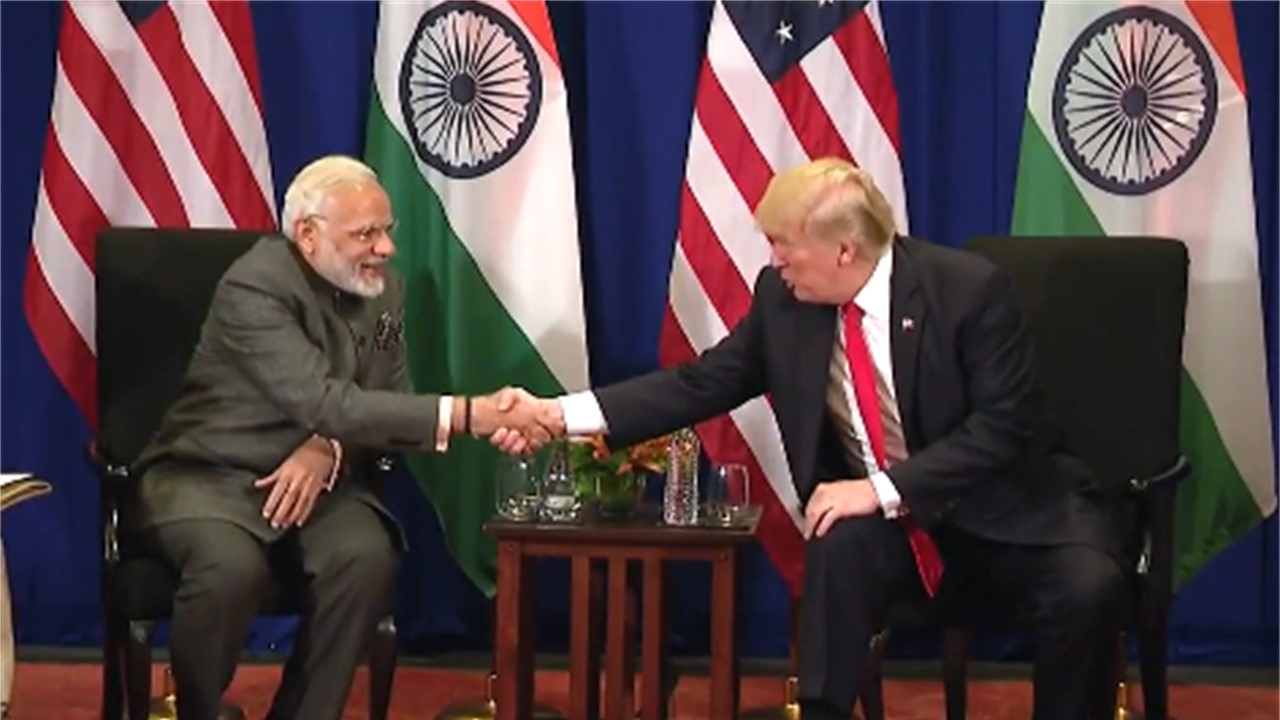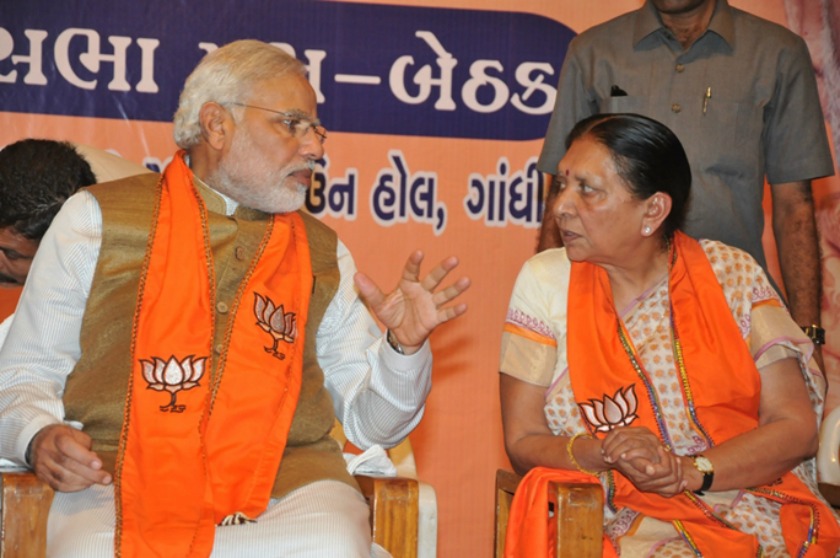
Jama Masjid Delhi, Image Credit: Shashwat_Nagpal/Wikimedia
India has for centuries been one of the most diverse countries but Indian Prime Minister Narendra Modi’s reelection for another five-year term has raised questions about the future of the country’s minorities, particularly its 170 million Muslims.
According to journalist Sadhartha Deb, Modi’s popularity in the Indian middle class and victory in the election represents voters’ “identification with this project of Hindu majoritarianism as the answer to whatever is complicated or confusing about the world today.”
If a large majority of Indians believes so, Modi’s victory means his Bhartia Janta Party has pushed the country more towards the exclusionary ideology of Hindutva – a far cry from Gandhi’s Hinduism which he made synonymous with peace and non-violence.
Modi is also accused of fomenting massacres of Muslims in Gujarat in 2002. As chief minister he viewed Muslims as baby-producing factories, as reminisced by Debb, who wrote a piece The New Republic headlined “Unmasking Modi: The violence, insecurity, and rage behind the man who has replaced Gandhi as the face of India
On the eve of election results, Arundhati Roy, the Booker Prize winner Indian author, zeroed in on the issue with the accusation Modi has links to extremist organizations that provoke violence against Muslims and other minorities.
Speaking to Washington-based Democracy Now, Roy author of The God of Small Things, Roy told anchor Amy Goodman that liberals have often played down the links between Modi’s Bharatiya Janta Party and RSS, an organization that has followed extreme views since its establishment in 1925.
She also explained some political context in India, where upper class politicians have long exploited the caste-ridden society, and where the disadvantaged like Dalits and minorities including Christians and Muslims have been at the receiving end.
Anti-Muslim violence in modern times can be traced back to 1992 demolition of Babri Mosque. Under Modi, it got worse.
Human Rights Watch released a report in February this year, detailing that three years between 2015 and 2018 have seen a rise in killings at the hand of cow vigilante groups.
“Members of the Bharatiya Janata Party (BJP), since coming to power at the national level in May 2014, have increasingly used communal rhetoric that has spurred a violent vigilante campaign against beef consumption and those deemed linked to it,” the report entitled Violent Cow Protection in India, says.
“Between May 2015 and December 2018, at least 44 people—36 of them Muslims—were killed across 12 Indian states. Over that same period, around 280 people were injured in over 100 different incidents across 20 states,” the HRW revealed.
Commenting on cow vigilante killings, Roy told Democracy Now that these groups have connections to people in power and there enjoy immunity.
“The RSS, the Rashtriya Swayamsevak Sangh, is a right-wing proto-fascist “cultural guild” as it calls itself, set up in 1925. And the BJP more or less functions as its parliamentarian department. But the RSS makes all the decisions,” she said.
“The secretary of the BJP belongs to the RSS. Most of the ministers belong to the RSS. And as I say, it was set up in 1925. Its enemies are declared Muslims, Christians, Hindus. It has always been against the Indian Constitution. It wants India declared a Hindu Republic.”
Meanwhile, a BBC report has documented how Indian Muslims fear for their future under Modi’s BJP rule. Citing the example of hate crime against Shaukat Ali – who was mauled by a mob for selling beef and forced to kneel in Assam state because of his faith.
“Shaukat Ali wasn’t just injured physically – he was stripped of his dignity,” BBC journalist wrote, adding that the mob “made the devout Muslim to eat pork, forcing him to chew it and then gulp it down.
“I have no reason to live now, ” Ali told BBC “This was an attack on my entire faith.”
BBC News – India's Muslims fear for their future under Narendra Modi https://t.co/ZlYZfBkoA6
— Views&News (@ViewsNewsMag) May 24, 2019
The report also relates the heartbreaking story of rape of an eight-year-old Muslim girl in Jammu, where many supported the rapists, who held the girl captive in a temple and drugged her.
The report recounts that two BJP ministers serving in the state government, Chaudhary Lal Singh and Chander Prakash Ganga, took to the streets alongside other people in support of the alleged perpetrators.
“While Mr Modi condemned the rape, he didn’t call for the men to resign immediately. It took weeks of pressure for them to step down.”
The BBC journalist Rajini Vaidyanathan quotes Arundhati Roy as saying that vigilante groups are able to carry out such crises “because they are protected from above.”
“It’s not just the leaders that we have to look to. What is happening to the mind of people who are constantly being fed this sort of hatred – to call that kind of poison back is going to be hard, ” Roy said.
The broadcasting service also quotes BJP spokesman Nalin Kohli, who dismissed the suggestion that the ruling party’s policies have stoked hate crime.
He accused the United Nations and human rights reports, which have spoken out against discrimination, of “skewing statistics to build up a narrative that does not exist”.
At the conclusion of the last phase of the elections, exit polls suggest that Modi might be on his way to reelection.
Several analysts and Indian commentators believe the Indian Muslims may face a bleak future if Modi, who was embraced by former U.S. president Barack Obama and has also been welcomed by President Trump, feels there is no compulsion for him to right the wrongs his party does in depriving India of its secularism and multicultural coexistence.

President Donald Trump meeting with Indian PM Narendra Modi in Manila, Philippines, November 13, 2017
Photo: Screenshot/Official WH YouTube Video
“Modi’s India feels like a place where the existing order of things has passed away, without any credible new order having come into being. Modi has won–and may yet win again–but to what end?” wondered author Aatish Taseer in a Time magazine article.
According to Taseer, Modi has failed to deliver on high-sounding slogans of economic progress that put him in charge of New Delhi through 2014 elections and therefore, he now feels the need to invent internal enemies.
“Even so, doubts assail him, for he must know he has not delivered on the promise of 2014. It is why he has resorted to looking for enemies within. Like other populists, he sits in his white house tweeting out his resentment against the sultanate of “them.” And, as India gets ready to give this willful provincial, so emblematic of her own limitations, a second term, one cannot help but tremble at what he might yet do to punish the world for his own failures,” Taseer wrote.
Clearly, a dark future for Indian Muslims will be one of the biggest setbacks to the country that has prided itself on its secular complexion, diversity and multicultural coexistence. Meanwhile, the international leaders appear to be willing to continue their embrace of Modi in a time of surging political right in the world.















